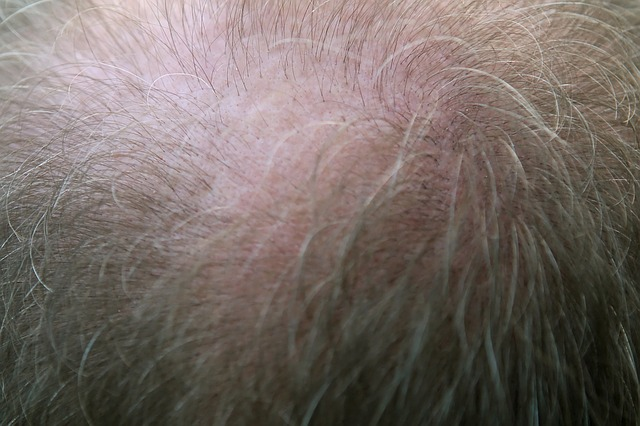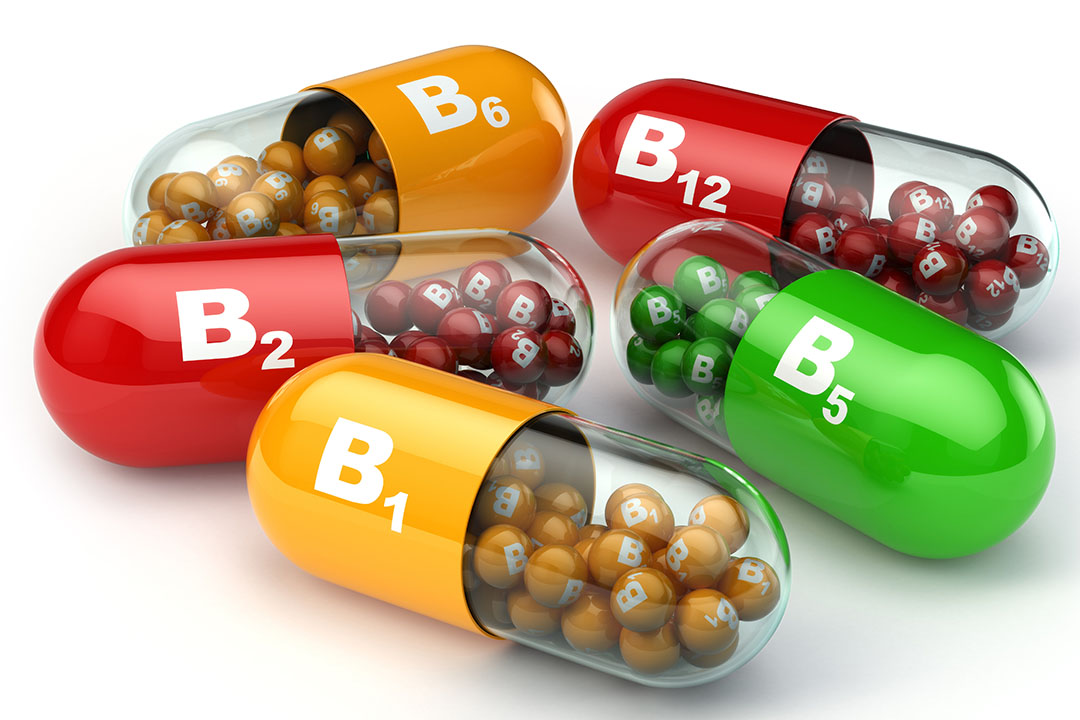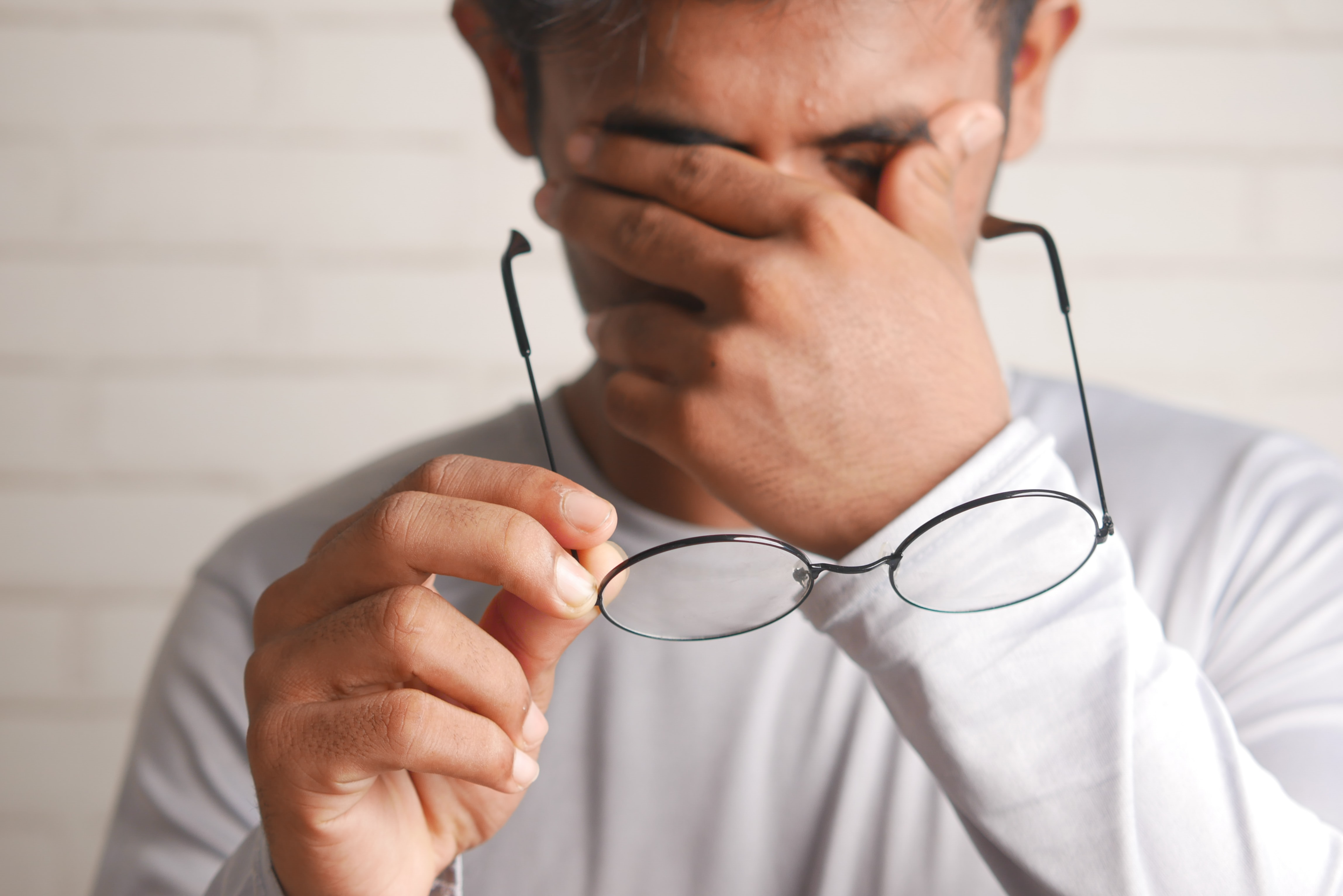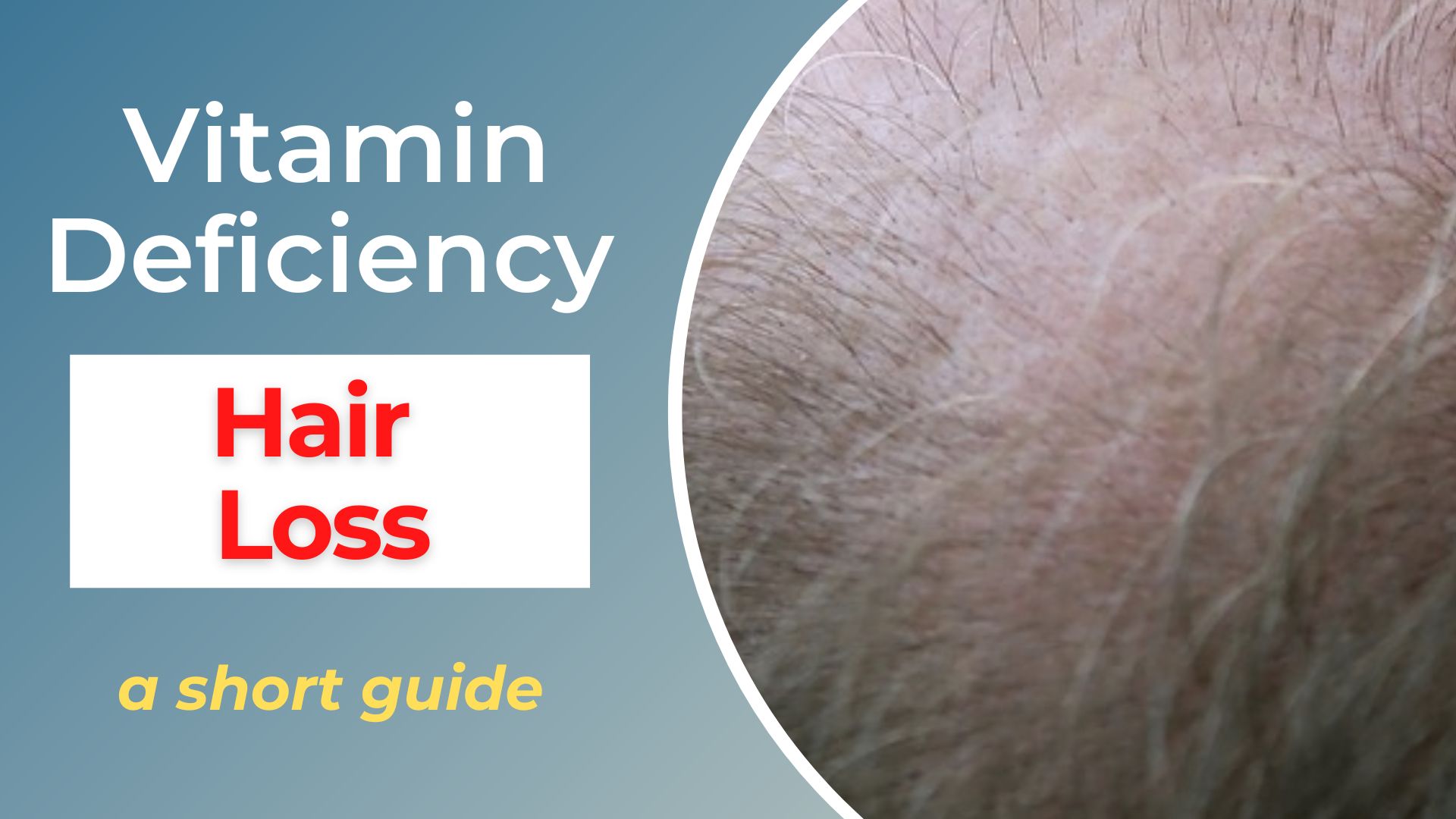So you woke up in the morning, looked in the mirror, and discovered that you’ve lost a few strands of hair. Does it feel like the world is crashing down on you? Don’t worry, you’re not alone.
One of the most prevalent problems among people of all ages is hair loss. It’s distressing to lose hair and never see it again.
There are many reasons for hair loss, but one of the most common is vitamin deficiency. When your body doesn’t get enough of the right vitamins, it can lead to hair loss.
Certain vitamins are also necessary for healthy hair maintenance. If you don’t consume enough of these nutrients from your diet, you might be at risk of losing your hair.
In this blog post, we’ll discuss the link between vitamin deficiencies and hair loss, as well as the treatments available. So let’s talk more about vitamins and hair loss.

Why Vitamins are important to Your Hair?
Let’s first begin by discussing this… why do you need vitamins for your hair?
Vitamins are important components of many bodily processes, including cell development, hormone synthesis, and blood clotting.
They are also important for the health of the hair follicles. A lack of vitamins can lead to hair loss because of the impact they have on the health of the hair follicles.
Another typical question is, “Is it only because I don’t get enough vitamins that my hair is falling out?”
Hair loss can also result from a lack of minerals, such as iron and zinc. Alopecia areata, a common hair loss condition, is often caused by an iron deficiency.
In alopecia aerate for example, the hair follicles are healthy but they don’t receive enough nutrients, such as iron, to function properly. Alopecia aerate can also be caused by zinc deficiency.
Anemia is an illness characterized by low levels of hemoglobin in the blood that may cause tiredness, pale skin, and shortness of breath.
Female pattern hair loss and male pattern hair loss is another common cause of hair loss in women and man. It’s a condition that’s thought to be caused by a combination of genetic and hormonal factors.
Read here for more information about Aloprecia aerate from the American Academy of Dermatology.
What vitamin are you lacking when your hair falls out?

There are many vitamins that are essential for hair growth.
- Vitamin A
- B vitamins (including biotin)
- Vitamin C
- Vitamin D
- Vitamin E and folic acid are all important nutrients for hair health.
A deficiency in any of these vitamins can lead to hair loss. For example, vitamin D deficiency can lead to alopecia aerate, which is a type of hair loss that can result in patches of baldness. Vitamin D deficiency is also linked to female pattern hair loss.
Let’s discover in more detail the role of each vitamin in hair loss prevention.
You can also search our database of supplements best for A, B vitamins, etc here.
Vitamin DeficienciesAnd Hair loss
Vitamin A and D are essential vitamins for many body processes, including cell growth, immune function, and vision.
Additionally, Vitamin D deficiency has been linked to hair loss. Vitamin D is thought to play a role in hair follicle function and growth.
Vitamin A and Vitamin D are both essential for hair growth. They work together to keep the scalp healthy and produce sebum, which helps to lubricate and waterproof the hair.
Vitamin A and D deficiency can lead to hair loss because of its impact on the health of your scalp.
If you don’t get enough Vitamin A and D, your scalp can dry up, resulting in dandruff and hair loss.
Vitamin A and D is also required for cell development. If your body does not have enough Vitamin A and D, it cannot make new hair cells, resulting in hair loss.
Folic Acid And Hair Loss
Folic acid is a Vitamin B that helps the body to produce new cells. It is important for hair growth as it helps to produce new hair cells.
A lack of folic acid can lead to hair loss because of the impact it has on cell production.
Cell production is an essential part of hair growth, and without enough folic acid, your body cannot produce new hair cells.
Folic acid is also important for the health of the hair follicles. A lack of folic acid can lead to the death of hair follicles, which can cause hair loss.
Folic acid is an important Vitamin B for preventing hair loss.
It’s one of the many vitamins that plays a role in hair growth. If you’re deficient in folic acid, you may be at risk for hair loss.
Vitamin C And Hair loss
Vitamin C has similar functions to Vitamin A, and it is also required for the maintenance of healthy tissues. Collagen is a protein that promotes the health of your skin and hair.
A Vitamin C deficiency can lead to hair loss because of its impact on collagen production.
If you don’t get enough Vitamin C, your body cannot produce enough collagen, resulting in dry and weak hair.
Vitamin C is also an antioxidant, meaning it helps to protect your cells from damage.
A deficiency in Vitamin C can lead to oxidative stress, which can damage the hair follicles and cause them to fall out.
Iron deficiency and hair loss
Iron is an essential mineral for the human body. It is necessary for the production of hemoglobin, which transports oxygen to the cells.
A lack of iron can lead to anemia, which is a condition characterized by a low level of hemoglobin in the blood. Anemia can cause fatigue, pale skin, and shortness of breath.
Iron deficiency anemia is the most common form of anemia and it is a leading cause of hair loss in women.
Anemia can also lead to hair loss due to the lack of oxygen that is being transported to the cells.
If you are iron deficient, your body is unable to produce enough hemoglobin, resulting in a lack of oxygen being delivered to the cells. This can cause hair follicles to become damaged and fall out.
Iron deficiency is a common cause of hair loss, especially in women. It’s important to get your iron levels checked if you’re experiencing hair loss.
Essential fatty acids
Essential fatty acids are a type of fat that is essential for human health. The body cannot produce these fats, so they must be got through diet.
Essential fatty acids play a role in many bodily functions, including cell growth, hormone production, and blood clotting.
They are also important for the health of the hair follicles. A lack of essential fatty acids can lead to hair loss because of the impact they have on the health of the hair follicles.
Essential fatty acids are found in foods such as oily fish, nuts, and seeds. If you’re not getting enough essential fatty acids in your diet, you may be at risk for hair.
Essential fatty acids are important for the health of your hair. They help to keep your hair moisturized and prevent breakage.
Hair that has a lack of critical fatty acids becomes dry, brittle, and more prone to breakage.
The health of the scalp depends on essential fatty acids, which are required for healthy hair growth. The lack of essential fatty acids can cause a dry, itchy scalp that can also lead to hair loss.
Does hair loss from vitamin deficiency grow back?

Vitamin deficiency causes hair loss, and one of the most frequently requested questions out of desperation is whether it regenerates.
When you lose your hair, the desire to recover it is natural, I understand.
So the answer is yes, hair loss of vitamin deficiency can grow back. However, it is important to treat the underlying cause of the hair loss in order to prevent it from happening again.
Vitamin deficiencies can be caused by a variety of factors, such as poor diet, certain medical conditions, and medications, and as we discussed above, each vitamin has a specific role to play in hair growth.
Therefore, it is important to consult with a doctor or nutritionist to determine which vitamin or minerals you may lack in order to correct the deficiency and prevent further hair loss.
You may also order the online vitamin deficiencies tests here to discover which vitamins or minerals you are lacking.
How to treat a Vitamin Deficiency?
There are a few ways to treat vitamin deficiencies that are causing hair loss.
The first step is to take supplements that contain the missing vitamins or minerals. You may read my in-depth blog article about vitamin deficiency here.
It’s also important to remember that sunlight is required for vitamin D synthesis, so if you’re concerned about exposure to too much radiation (particularly in winter), consider getting your skin checked.
To begin, take vitamin D supplements.
The recommended daily intake of vitamin D is 600 IU (international units) for adults. However, some people may need more.
It’s also vital to note that too much vitamin A in the body may result in hair loss. Vitamin A is necessary for cell development, but excessive amounts of it can be harmful. If you think you may be taking too much vitamin A, speak with your doctor.
You can also order a vitamin deficiency blood test online here.
It is important to speak with a doctor before taking any supplements for professional medical advice, as they can interact with medications you may take and cause other side effects.
However, if you are not taking vitamins or minerals as directed, you may always attempt supplements to improve your vitamin or mineral intake on your own. Here are some of the best vitamin D supplements you can try.
Vitamins-Rich Foods

Another way to treat vitamin deficiencies is to make sure you are eating a balanced diet that contains all the essential nutrients your body needs.
You may need to take a multivitamin or eat foods that are fortified with vitamins and minerals if you are not getting enough of them through your diet.
- Vitamin A: sweet potatoes, carrots, dark leafy greens, squash, eggs
- Vitamin B: salmon, avocados, nuts, seeds, beans
- Vitamin C: oranges, strawberries, bell peppers, kale
- Vitamin D: milk, fortified cereals and juices, fatty fish
- Vitamin E: sunflower seeds, almonds, spinach, broccoli
- Vitamin K: dark leafy greens, cabbage, Brussels sprouts, chicken
- Biotin: eggs, salmon, avocados, nuts
- Folate: dark leafy greens, legumes, oranges
- Pantothenic acid: meat, poultry, fish ,eggs ,dairy products, legumes
- Vitamin B12: meat, poultry, fish ,eggs ,dairy products
- Vitamin B complex: found in most foods but especially in whole grains, dark leafy greens, potatoes and other starchy vegetables, beans and legumes.
Summary
In conclusion, hair loss can be caused by vitamin deficiencies. Vitamin deficiencies can be caused by a variety of factors, such as poor diet, certain medical conditions, and medications.
Each vitamin has a specific role to play in hair growth, and it is important to consult with health professionals or nutritionists to determine which vitamin or minerals you may lack in order to correct the deficiency and prevent further hair loss.
There are a few ways to treat vitamin deficiencies that are causing hair loss, such as taking supplements or making sure you are eating a balanced diet that contains all the essential nutrients your body needs.
Vitamin A, Vitamin B, Vitamin C, Vitamin D, Vitamin E, Vitamin K, biotin and Folate are some of the vitamins that play an important role in hair growth.




Great blog ,i used natural infusions hair serum due to vitamin deficiency i have a hair loss issue by using this hair serum product i got a good hair growth.